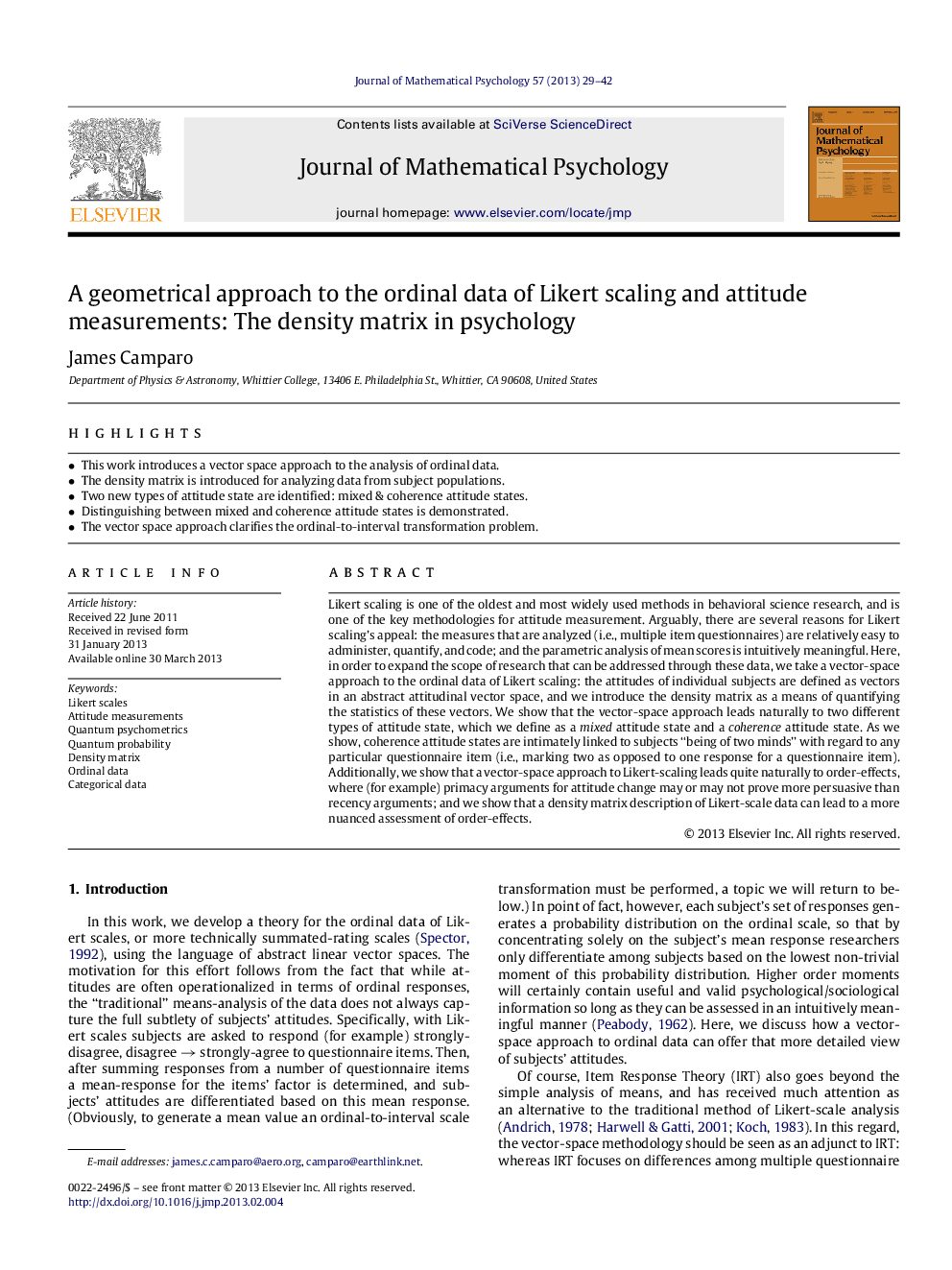| کد مقاله | کد نشریه | سال انتشار | مقاله انگلیسی | نسخه تمام متن |
|---|---|---|---|---|
| 326427 | 542419 | 2013 | 14 صفحه PDF | دانلود رایگان |

• This work introduces a vector space approach to the analysis of ordinal data.
• The density matrix is introduced for analyzing data from subject populations.
• Two new types of attitude state are identified: mixed & coherence attitude states.
• Distinguishing between mixed and coherence attitude states is demonstrated.
• The vector space approach clarifies the ordinal-to-interval transformation problem.
Likert scaling is one of the oldest and most widely used methods in behavioral science research, and is one of the key methodologies for attitude measurement. Arguably, there are several reasons for Likert scaling’s appeal: the measures that are analyzed (i.e., multiple item questionnaires) are relatively easy to administer, quantify, and code; and the parametric analysis of mean scores is intuitively meaningful. Here, in order to expand the scope of research that can be addressed through these data, we take a vector-space approach to the ordinal data of Likert scaling: the attitudes of individual subjects are defined as vectors in an abstract attitudinal vector space, and we introduce the density matrix as a means of quantifying the statistics of these vectors. We show that the vector-space approach leads naturally to two different types of attitude state, which we define as a mixed attitude state and a coherence attitude state. As we show, coherence attitude states are intimately linked to subjects “being of two minds” with regard to any particular questionnaire item (i.e., marking two as opposed to one response for a questionnaire item). Additionally, we show that a vector-space approach to Likert-scaling leads quite naturally to order-effects, where (for example) primacy arguments for attitude change may or may not prove more persuasive than recency arguments; and we show that a density matrix description of Likert-scale data can lead to a more nuanced assessment of order-effects.
Journal: Journal of Mathematical Psychology - Volume 57, Issues 1–2, February–April 2013, Pages 29–42